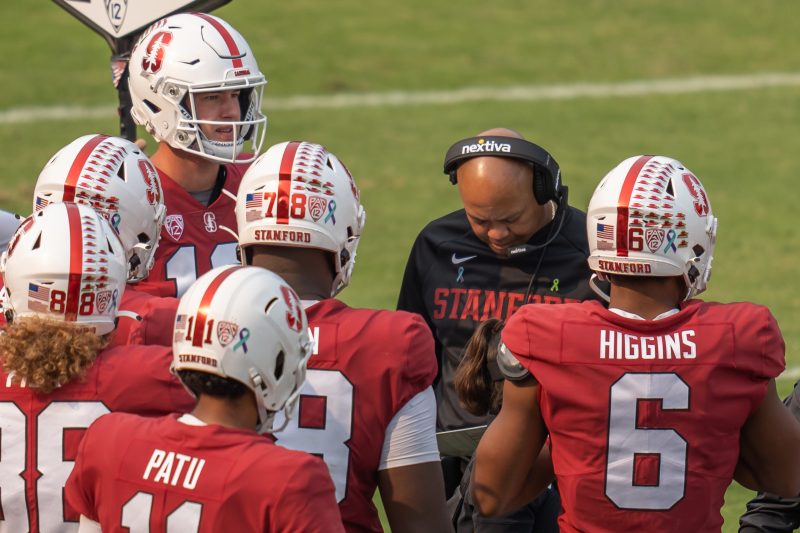The National College Players Association (NCPA) filed a civil rights complaint Tuesday morning alleging that Division I colleges are disproportionately hurting Black students by limiting college athlete compensation.
Stanford, as a Division I school, is implicated in the complaint, which was filed with the U.S. Department of Education’s Office for Civil Rights. Notably, junior wide receiver Elijah Higgins spoke in support of the effort. Higgins said in a press release that the schools should “first acknowledge the reality of the business that is college football. Then, recognize how the current structure inhibits those (disproportionately Black) athletes from tapping into the money they generate with their skillsets, abilities, and hard WORK.”
The NCPA alleges that, because a high percentage of the Black students at these colleges are also college athletes, Black students are disparately impacted by compensation limits imposed by colleges. These limits, which are standardized throughout the college athletics industry, set a cap on the pay and benefits that certain athletes receive. According to the NCPA, this disparate impact constitutes a civil rights violation when the standard practice of an organization has disproportionately harmful effects on individuals who belong to a legally protected class.
“This multibillion college sports enterprise imposes discriminatory practices that disproportionately harms Black athletes, while predominantly White coaches and administrators make millions of dollars,” said NCPA executive director Ramogi Huma in the release. “College athletes throughout predominantly white sports receive fair market compensation, but athletes in the only predominantly Black sports (FBS football and men’s and women’s basketball) do not.”
Assistant Athletics Director of Communications Brian Risso wrote in an email to The Daily that “Stanford has not seen the complaint that was apparently filed with the Department of Education.” He added, “we look forward to reviewing the complaint, and we support our student-athletes’ ability to voice their viewpoints in constructive and appropriate ways.”
The lawsuit comes a month after the NCPA launched its #JforJustice campaign on Feb. 8. The campaign aims to pursue the goals of “fair compensation, including scholarships for Ivy League athletes,” “improved Title IX compliance transparency and enforcement,” “enforcement of health and safety standards” and “preservation of all sports,” according to the NCPA website. The organization kicked off the campaign by filing unfair labor practice charges against the NCAA, the Pac-12, UCLA and USC. The effort was directed toward the National Labor Relations Board, which the NCPA hopes will rule that Division I football and men and women’s basketball players are employees who deserve fair-market compensation.
Along with the complaint, the organization also launched a change.org petition calling for support for the campaign’s objectives, which it contends are “vital protections and rights for current college athletes and generations of future college athletes.”
This effort precedes the Fair Pay to Play Act, which goes into effect in January 2023. The bill, signed in 2019, makes it illegal to preclude a university from competing if its student-athletes receive compensation for their name, image or likeness and prohibits universities from rescinding athletes’ scholarships if they seek compensation or professional representation.
This article has been updated with comments from Assistant Athletics Director of Communications Brian Risso.
